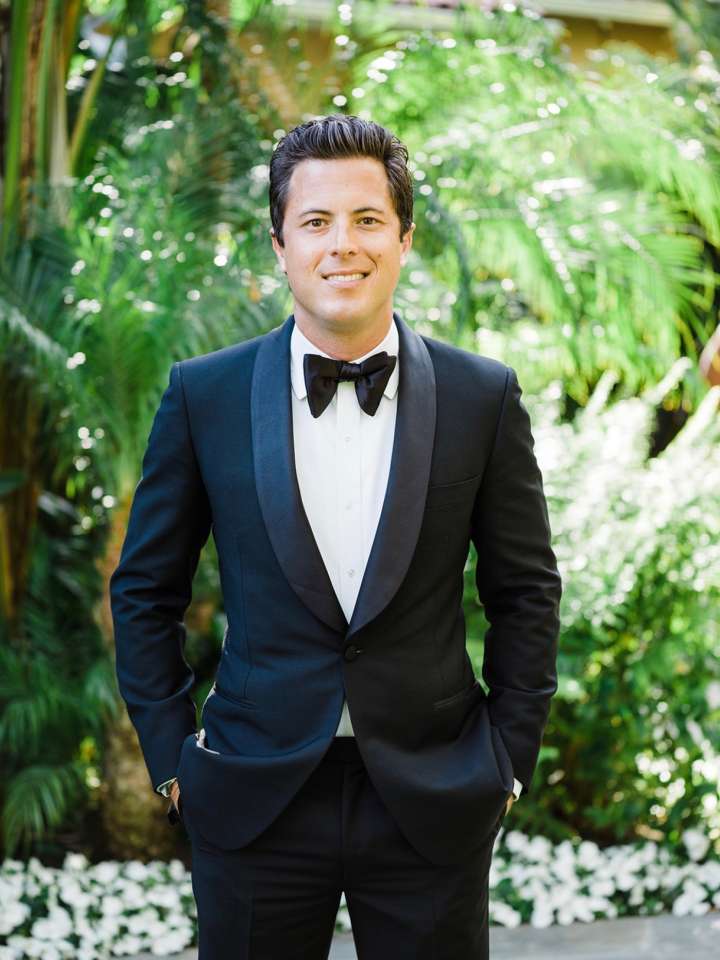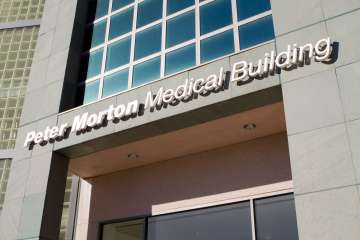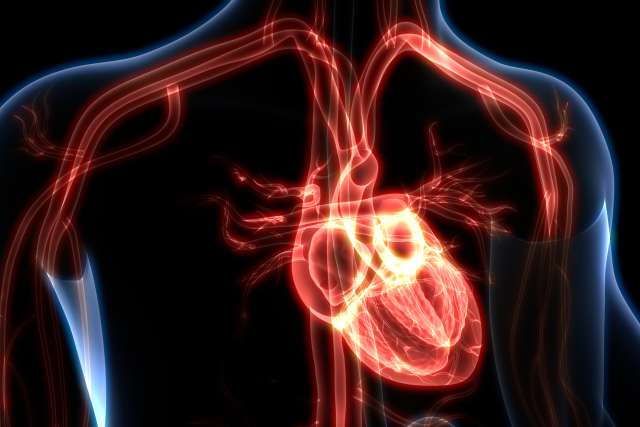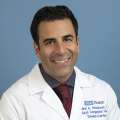A gift from a philanthropist who lost his son to sudden cardiac death will allow UCLA Health to fund potentially lifesaving heart screenings for patients in need.
Los Angeles-based restauranteur Peter Morton made the seven-figure donation to establish the Harry Morton Congenital Heart Disease Screening Fund in memory of his son, who died in 2019 at age 38.
The fund will enable pediatric and adult patients to undergo a variety of tests, including CT scans, MRIs, echocardiograms and cardiac stress tests, to look for heart defects.
Jamil Aboulhosn, MD, director of the Ahmanson/UCLA Adult Congenital Heart Disease Center, said Morton’s gift is a huge benefit for patients who lack insurance or whose private coverage or government insurance denies necessary diagnostics.
“It just knocks down the walls that are oftentimes illogical and bureaucratic in medical care,” Dr. Aboulhosn said. “That’s why I am very, very appreciative of Mr. Morton’s generosity and his vision for this. What he wants is for people who need these studies to get them done without any hurdles – that we find these conditions before people have adverse events.”
Dr. Aboulhosn, professor of clinical medicine at the David Geffen School of Medicine at UCLA, said referrals to the program will come from UCLA Health physicians.
“It should be patients who are suspected of having congenital heart disease or congenital coronary abnormalities based on their symptoms and/or examination,” he said.
Concerning symptoms include: chest pain, loss of consciousness or shortness of breath – especially if any of those occur with exercise, Dr. Aboulhosn said. An irregular heart rhythm is another risk factor, along with a family history of congenital heart problems.
Undiagnosed condition
Harry Morton was a triathlete with no outward signs of a heart condition when he died suddenly in November 2019. Like his father and grandfather, he’d gone into the restaurant business, founding the chain Pink Taco. Peter Morton co-founded the restaurant chain Hard Rock Café and his father, Arnie Morton, founded Morton’s The Steakhouse.
“He was an incredibly charitable, philanthropic individual,” Peter Morton said of Harry.

After his death, Harry’s family learned through an autopsy that he had a probable cardiac arrhythmia, which is an irregular heartbeat. Additionally, he had an undiagnosed congenital coronary artery abnormality, called myocardial bridging, where one or more coronary arteries go through the muscle of the heart instead of resting on the surface; as well as coronary atherosclerosis, a condition where plaque can narrow arteries.
“Unfortunately, he was never screened for the one thing that could tell him if heart disease existed,” Morton said. “I wanted to set up this screening fund for people who couldn’t afford to get screened.”
Dr. Aboulhosn said based on what he’s been told about Harry, a CT coronary angiogram would have detected his condition. The imaging test examines the heart and its blood vessels. People undergoing the screening receive an IV with dye to show coronary artery and cardiac anatomy.
The fund will not only cover CT coronary angiograms but also cardiac MRI, echocardiography, cardiopulmonary exercise stress testing and genetic testing to look for inherited cardiac disorders.
Dr. Aboulhosn described a number of scenarios in which the fund could be used, such as for fetal echocardiography to look for congenital heart defects or structural heart disease during pregnancy, which occurs when parts of the heart form incorrectly.
“We are hoping to identify heart disease in utero, before birth, so we are ready to act,” he said.
Comprehensive genetic testing could be needed for a patient suspected of having a genetic abnormality or syndrome.
“If the insurance refuses to cover that, we could use this fund to really figure out why this person has this problem and is it something that could be passed down to children,” Dr. Aboulhosn said.
Dr. Aboulhosn said insurance may deny a cardiac MRI – which produces detailed images of the heart – for an adult with congenital heart disease, in favor of a less expensive procedure.
“We’re asked to perform a CT scan instead, which is radiation to the patient that we want to try to avoid,” he said.
Dr. Aboulhosn said for his patients, alone, insurance denials come up a few times a month, noting that he’s just one cardiologist at UCLA.
“A lot of those worries will be put to bed if we have a fund that can cover these screening studies,” he said.
History of generosity
Morton has a long history of giving to UCLA Health, which was prompted by the excellent care his younger son, Matthew Morton, received years ago.
He’s made a number of gifts over the years, starting with $10 million to help fund new operating rooms and expand radiation therapy and other services at 200 UCLA Medical Plaza, named the Peter Morton Building.

This time, Morton said he wanted to do something in Harry’s name to raise awareness of undiagnosed heart conditions.
“The disease exists and that’s the way to determine the extent of the disease – through the screening process,” he said.
Morton said he saw first-hand the superb care offered by UCLA Health when Matthew was hospitalized with a head injury after falling out of a tree as a child.
“They serve all levels of the community, rich or poor,” Morton said. “It’s saved so many people’s lives. I love what UCLA does. It’s a great organization, great hospital.”
While his giving to UCLA started because of Matthew, now he hopes Harry will be honored through the prevention of other sudden deaths.
“He’d be happy,” Morton said.
Courtney Perkes is the author of this article.




